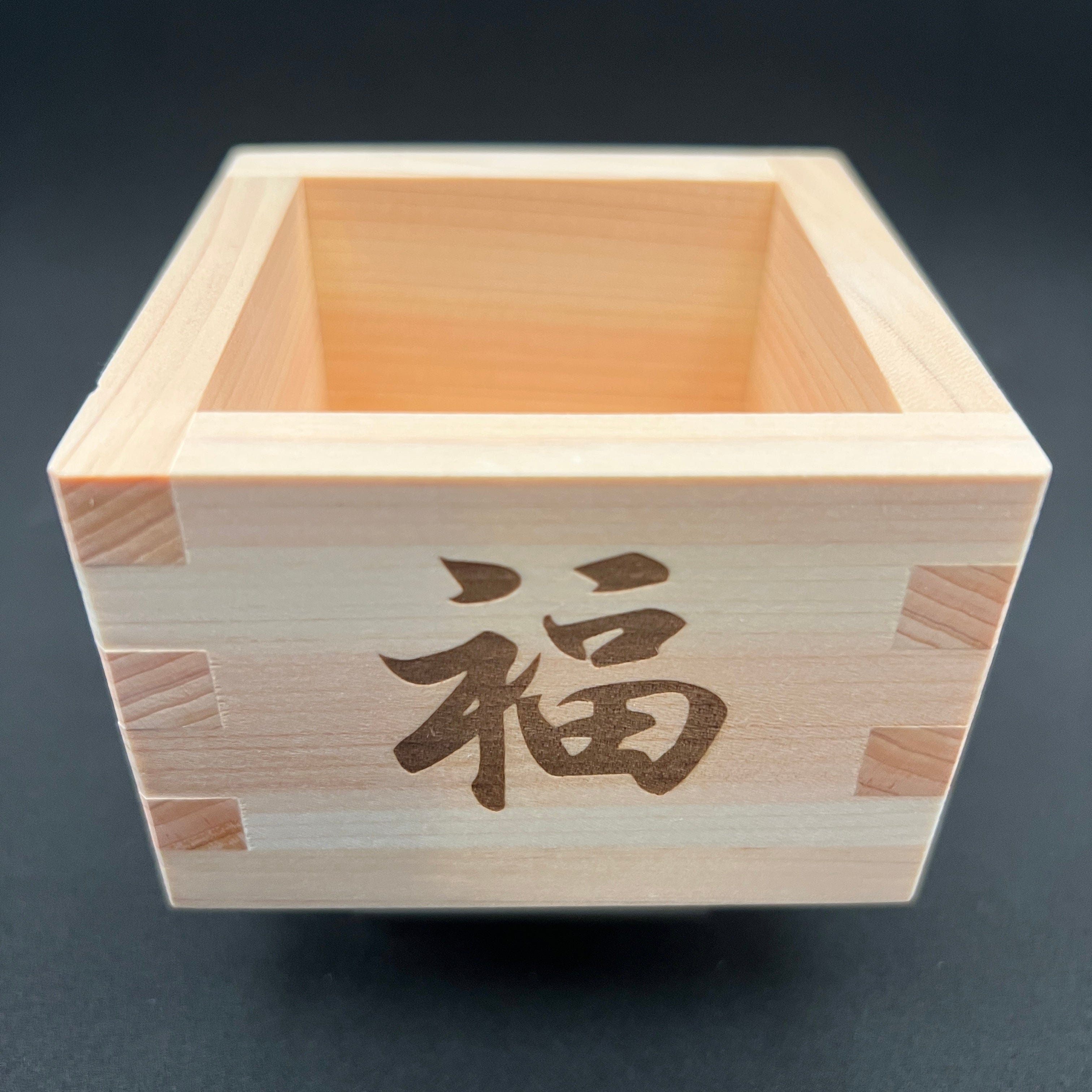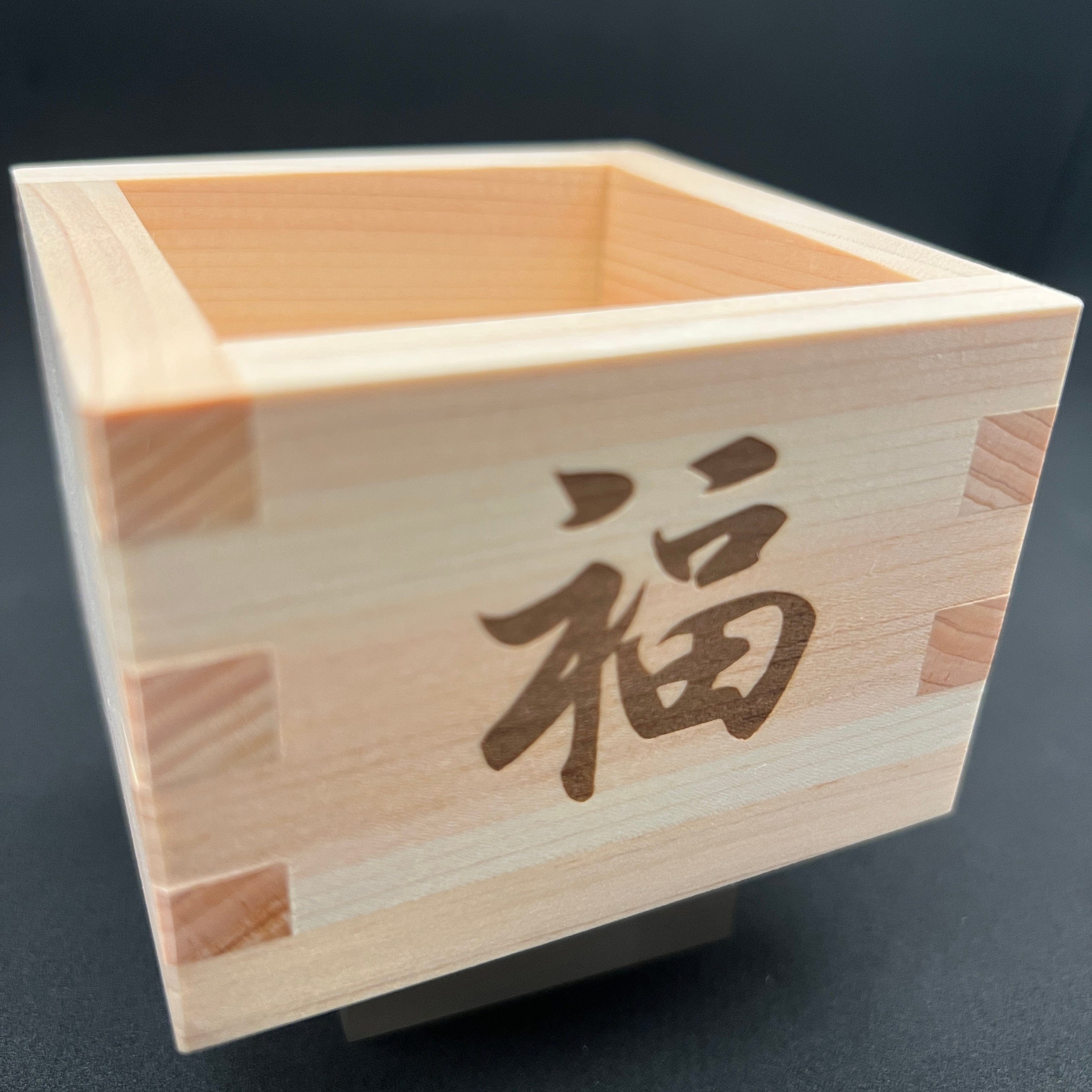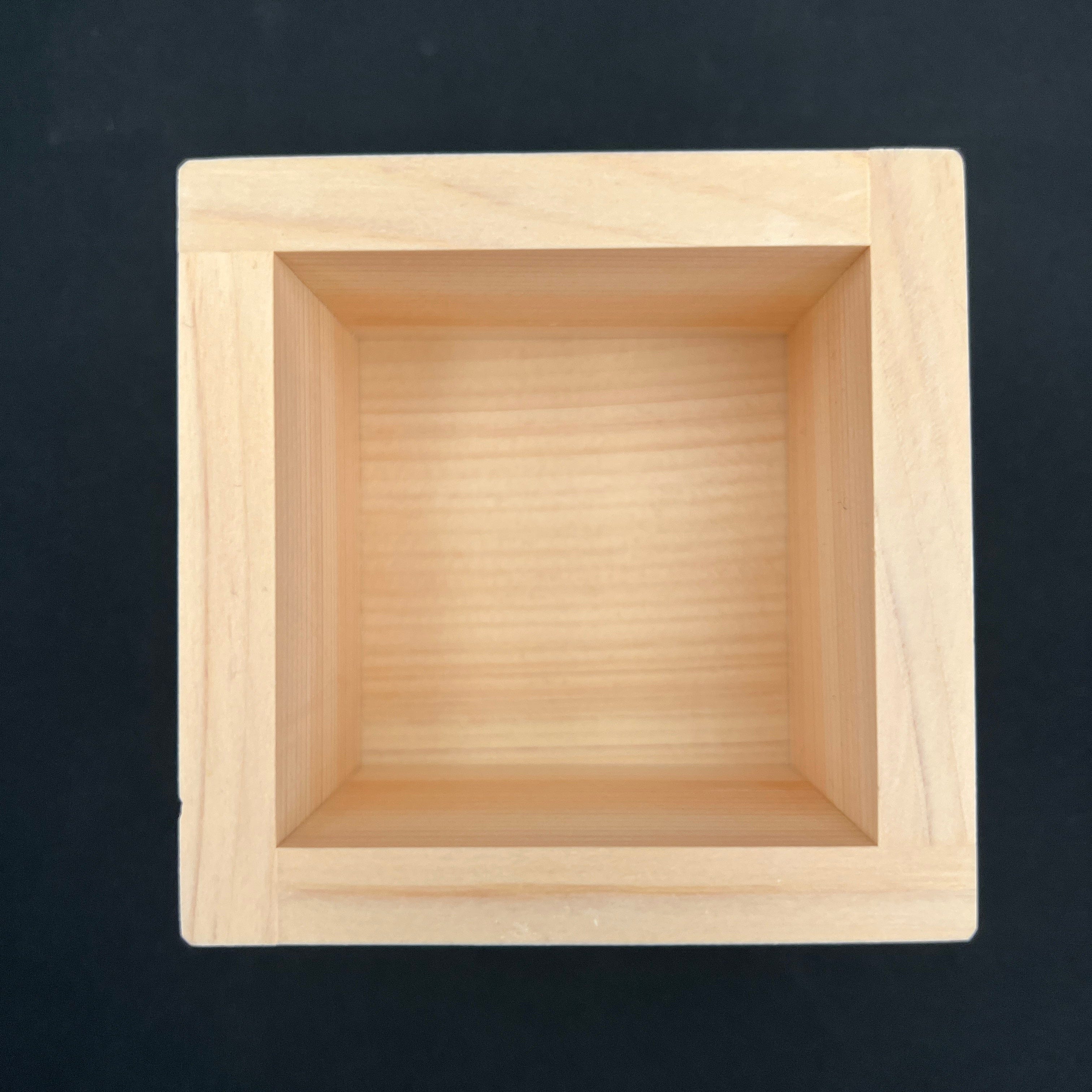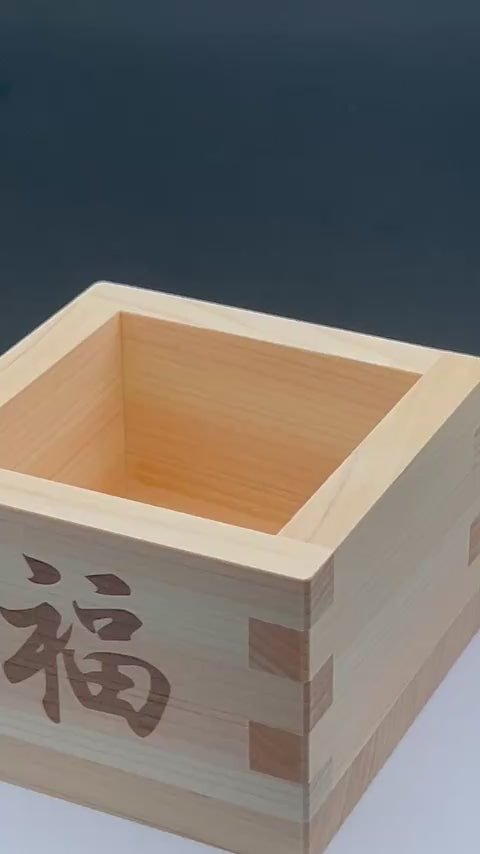



Hinoki Wood Masu Cup
Pairs well with

Hinoki Wood Masu Cup
If you have any questions, you are always welcome to contact us. We'll get back to you as soon as possible, within 24 hours on weekdays.
-
Shipping Information
Use this text to answer questions in as much detail as possible for your customers.
-
Customer Support
Use this text to answer questions in as much detail as possible for your customers.
-
FAQ’s
Use this text to answer questions in as much detail as possible for your customers.
-
Contact Us
Use this text to answer questions in as much detail as possible for your customers.
Bring Home Blessings
This Hinoki Masu Cup is more than a vessel—it's a symbol of good fortune and timeless Japanese tableware tradition. Handcrafted from fragrant hinoki cypress, prized for its natural antibacterial properties and soothing aroma, this square wooden cup is traditionally used for drinking sake during celebrations and rituals.
On its front, the kanji 福 (Fuku) is boldly engraved, meaning "good fortune" or "blessing." Whether used for toasting during festive occasions, as a unique presentation piece, or as a thoughtful gift, this masu cup brings warmth, prosperity, and authenticity into any space.
The masu is handcrafted from natural Kiso hinoki, a revered variety of Japanese cypress considered the highest grade among the legendary “Five Kiso Trees” (Hinoki, Sawara, Hiba, Kōyamaki, and Nezuko). Grown in the pristine forests of the Kiso region, this precious wood is exceptionally rare—it takes nearly 300 years for a single tree to reach a diameter of just 30 centimeters.
Kiso hinoki is renowned for its straight, fine grain, luminous pale hue, and subtle sheen. It is easy to work with, yet remarkably durable—qualities that have long made it the material of choice for sacred architecture, including centuries-old temples and shrines across Japan. Its natural antibacterial properties make it ideal for culinary use as well, often seen in high-end sushi counters and handcrafted cutting boards.
Beyond its visual beauty and functional strength, hinoki releases a calming, forest-fresh fragrance known to evoke the tranquility of shinrin-yoku—Japanese forest bathing. When used for drinking vessels like this masu, the gentle scent enhances the aroma of sake, creating a deeper, more refined sensory experience.
Celebrate life’s moments with a touch of Japanese craftsmanship—and invite a little 福 into your day.
Product Information
Material
Care instructions
FAQs
All you need to know about Japanese Masu Cups.
What is a masu cup, and what is it traditionally used for?
A masu is a square wooden cup originally used in Japan to measure rice. Over time, it became a traditional vessel for drinking sake, especially during festivals and ceremonies. Today, it's also used for decorative purposes, gifting, or enhancing a sensory sake experience.
What makes hinoki (Japanese cypress) special for masu cups?
Hinoki is one of Japan’s most revered woods, known for its fine grain, gentle aroma, antibacterial properties, and beautiful pale color. Sourced from the forests of regions like Kiso and around Ōgaki, hinoki lends a uniquely refined feel and a natural fragrance that enhances the taste and aroma of sake.
Can I drink directly from a hinoki masu cup?
Yes! Hinoki masu cups are designed for direct use with sake or water. The light aroma of the wood adds a subtle layer to the drinking experience. However, avoid using the cup with acidic or hot beverages, as they may damage the wood over time.
How should I clean and store my hinoki masu cup?
Gently hand wash the cup with lukewarm water—never use soap or a dishwasher. Dry it immediately with a soft cloth and allow it to air-dry completely in a shaded, ventilated space. Store away from direct sunlight and moisture to prevent warping or discoloration.
Will the scent of the hinoki wood fade over time?
The natural fragrance of hinoki will gradually soften with use, but this is part of its charm. Proper care can help preserve its scent longer. Occasionally rinsing with warm water and drying thoroughly helps refresh the wood’s surface without damaging its integrity.

